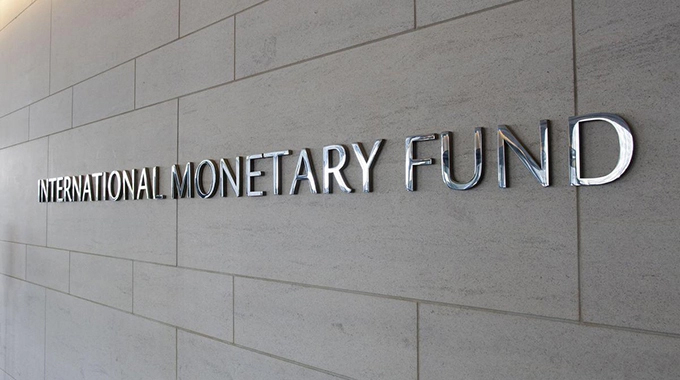Positive economic recovery signs in Zimbabwe — IMF

Africa Moyo, Harare Bureau
THE International Monetary Fund (IMF) says there are positive signs of the economic recovery in Zimbabwe starting last year after two years of recession, adding that Government had done well in addressing macroeconomic imbalances while also ensuring that vulnerable members of society were supported.
Further, the IMF commended Government for its swift response in fighting Covid-19, in which lockdowns were promptly imposed while huge investments were made in the healthcare system and later in importing vaccines.
The interventions saw fewer Covid-19-related deaths compared to other countries while over 4,5 million people have been vaccinated.
President Mnangagwa has reiterated that more vaccines are available for those that wish to boost their immunity, in the event a fresh wave of Covid-19 breaks out.
Many of the proposals made by the IMF in the report are already Government policy with the report seen as backing for these policies as well as wishing to make sure they are fully implemented.
In a statement yesterday after concluding the Article IV Consultation with Zimbabwe on March 21, the IMF said: “Executive directors welcomed the positive signs of economic recovery following two years of deep recession.
“Directors commended the authorities for their swift response to the Covid-19 pandemic and for stronger efforts to address macroeconomic imbalances while prioritising social support.”
The IMF said given the challenges that remain, including poverty in some parts of the country, there was need for authorities to implement “the necessary reforms that would foster higher, more inclusive growth and pave the way for re-engagement with the international community”.
This is largely the Government position, which the IMF appears to back, that no person and no community should be left behind while the top priority in foreign policy is re-engaging the international community.
IMF executive directors agreed that fiscal policy should aim to restore macroeconomic stability and create fiscal space for priority spending.
They also emphasised the need to enhance revenue mobilisation, including through broadening the tax base and improving tax administration and compliance.
The Zimbabwe Revenue Authority (Zimra) has been pulling all stops in ensuring that everyone that has to pay statutory obligations does so, at the appropriate time, to enhance revenue collection.
At the same time, the Government tax proposals have seen the introduction of the tax on transactions and the requirement for withholding taxes to ensure that large swathes of the informal sector enter the formal economy.
On the spending side, the IMF said accelerating reforms of State-Owned Enterprises and enhancing fiscal controls would be critical to limit fiscal risks.
Zimbabwe is in the process of reforming the operations of SOEs, with some in talks with potential partners to boost their operations while others would be merged.
In addition, the Second Republic led by President Mnangagwa has introduced performance contracts for heads of parastatal and SOEs, to ensure the firms they lead don’t always turn to central Government for “capital injections” which are often abused.
The IMF directors also encouraged the authorities to use the US$961 million Special Drawing Rights allocation prudently and transparently.
Considering that Zimbabwe remains in debt distress, with large external arrears to official creditors, the IMF team welcomed the Government’s “commitment to re-engage with external creditors, including by resuming token payments and preparing a debt resolution strategy”.
“Directors encouraged further efforts to enhance debt management and transparency.
Directors recommended further monetary tightening, given the persistently high inflation,” said the IMF.
They also called for concerted efforts toward greater exchange rate flexibility by allowing a more transparent and market-driven price process.
Government was also encouraged to phase out exchange restrictions and multiple currency practices as soon as conditions permit.
The IMF directors also welcomed Zimbabwe’s removal from the Financial Action Task Force (FATF) grey list and progress on strengthening the framework for anti-money laundering and countering terrorist financing, and encouraged further efforts to address the remaining deficiencies.
Directors noted that addressing institutional weaknesses is instrumental in supporting growth and social development.
“They looked forward to further progress on implementing the 2020 National Anti-Corruption Strategy.
Directors underscored the importance of prioritising structural reforms to improve the business climate and build resilience to climate change.
“Directors encouraged the authorities to advance reforms, noting that a new Staff Monitored Programme could help establish a track record of sound policies and provide further impetus to their re-engagement efforts,” said the IMF.
Finance and Economic Development Minister Professor Mthuli Ncube yesterday told global news agency, Bloomberg, that Zimbabwe continues to work towards reducing inflation.
“We have down well to bring inflation down. We brought it down from over 800 percent to 66 percent on a year-on-year basis.
Of course at the moment we are being impacted by the whole global scenario, the global spill-overs in terms of imported inflation via the global fuel prices, via the supply challenges (occasioned by the Russian special operation in Ukraine).
“But also we benefit because we are a commodity exporter of base metals, nickel and others,” he said.
Prof Ncube said the target was to reduce year-on-year inflation to less than 20 percent but “it could be slightly higher” although “the inflation trend remains downwards”.
“One step that we have taken is reducing taxes on petroleum products, on diesel and petrol, just to make sure that we contain inflation domestically.
“We think we can keep this (tax reduction) going for a while and we think it will go a long way in ameliorating imported inflation,” said Prof Ncube.
On the fiscal front, Prof Ncube said the plan is to continue running things as tightly as possible, of course mindful of the twists and turns that may occur along the way.
He added that following a bumper maize harvest in the last season, there would be no need for imports but some wheat would be required to augment existing stocks.
More support would be rendered to wheat farmers during this year’s cropping season to ensure high yields which will eliminate the need for imports going forward.
The IMF said the recovery that resumed in 2021 is expected to continue, albeit at a slower pace, with growth projected at about 3,5 percent in 2022 and 3 percent over the medium-term in line with Zimbabwe’s growth potential.










Comments